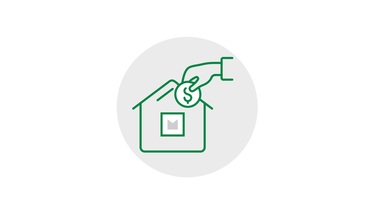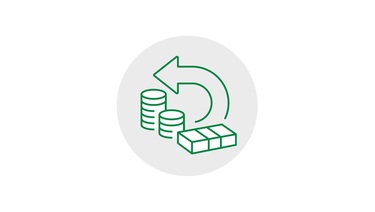Self-Directed Individual Retirement Account (IRA)
As a sophisticated investor, you want to control where and
how you invest for retirement.
With a self-directed IRA, you direct your retirement money
into investments that are unique to your interests and
knowledge. This gives you flexibility, personalization and
diversification.
Bank of Utah has the experience and knowledge to assist
you with acquiring and administering unique investments in
your IRA. This allows you to explore new opportunities with
confidence, knowing our trust officers will administer your
IRA assets in accordance with your directions and IRA
regulations.
What Assets Can I Invest in With a Self-Directed IRA?

Private Investments
Including limited liability companies and private company stock

Real Estate
Including residential rental properties, commercial building, land and more

Other Alternatives
Including private loans, precious metals (gold and silver), mineral interests (oil and gas) and CDs
Self-Directed IRA Highlights
The Internal Revenue Code requires that a qualified custodian maintain custody of the assets in an IRA for the account owner.
Unlike registered financial advisors and broker-dealers, the custodian of a self-directed IRA does not offer or sell investments, or provide any investment guidance or advice. Rather, the custodian executes your investment decisions solely at your discretion.
As custodian for your self-directed IRA, Bank of Utah can help you:
- Administer IRA assets under your direction
- File necessary tax reports in compliance with IRA regulations
- Record all transactions pertaining to the IRA and issue account statements
- Pay all IRA asset-related expenses, including property taxes, utility bills and maintenance expenses
PLEASE NOTE: We strongly recommend that you consult with your financial advisor before entering into this type of investment. Together, you can consider the intricacies of your specific and alternative investment choices.
Frequently Asked Questions
Can Bank of Utah Help Roll My Retirement Accounts into a Self-Directed IRA?
Yes. Bank of Utah advisors can help you transfer qualified funds into a self-directed IRA. Most types of retirement accounts can be transferred into a self-directed IRA, including:
- IRAs
- Roth IRAs
- SEP IRAs
- 401(k)s
- 403(b)s
- Qualified annuities
- Profit-sharing plans
What Are My Duties as the Account Owner of a Self-Directed IRA?
The owner of a self-directed IRA has the following responsibilities:
- Provide direction to the custodian for all desired investments and actions
- Conduct any due diligence of an investment opportunity, sponsor, advisor or other third party with which the account owner wishes to work
- Understand the risks associated with investments and receive any necessary investment, legal, tax or other advice to assist with this understanding
- Provide annual valuations to the custodian for all assets held in the IRA
- Ensure that all assets can be held legally in an IRA under IRS rules and do not violate the Prohibited Transaction rules or any other applicable rules or regulations
- Monitor the IRA and review account statements and all other required tax forms and custodian forms on a regular basis
- Take any required minimum distributions from the IRA
- Plan ahead, to ensure you have sufficient funds in the account to pay IRA fees and investment-related expenses.
What Should I Do Before I Make an Investment in a Self-Directed IRA?
Before you invest, it is prudent to perform your own thorough research and due diligence on the risk profile of an investment and the track record of the investment advisor and/or sponsor. You should consult with tax and legal advisors for specific questions about your investment and any tax or legal implications.
DISCLOSURE: Non-deposit investment products are not FDIC insured







